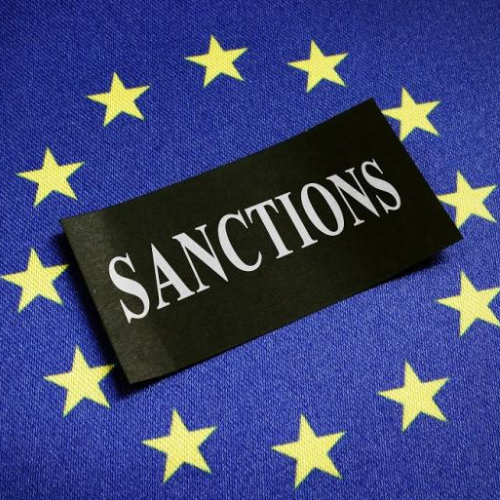The European Union (EU) has taken a strong stance against the growing violence in Haiti by imposing sanctions on three individuals linked to violent gangs in the country. These gangs have been causing havoc, including killings, kidnappings, and other serious crimes. The EU’s decision comes in response to the worsening situation in Haiti, which has been plagued by gang violence and widespread human rights abuses.
EU Acts to Fight Gang Violence
The EU has announced new sanctions against three gang leaders in Haiti, aimed at helping curb the chaos caused by criminal groups. These individuals are linked to some of the most dangerous gangs in the country, which have been involved in violent actions such as robberies, kidnappings, extortion, and even murder and rape.
The EU’s measures are intended to target these key figures who are fueling the unrest and instability in Haiti. These sanctions include freezing any assets they have in EU countries, making it illegal for EU citizens or businesses to deal with them financially. The sanctions also include a travel ban, which means that the individuals are not allowed to enter any EU country.
The EU’s move is part of its ongoing efforts to support Haiti in its fight against gang violence and to restore law and order in the country. This decision follows previous calls from the European Council, which expressed deep concern about the state of security in Haiti. In October 2024, the European Council urged for more action to address the growing violence and called for additional sanctions against those responsible.
Criminal Activities of the Gangs
Haiti’s security situation has been getting worse for several years now. Armed gangs control large parts of the country, and they frequently engage in brutal criminal activities. These gangs often carry out violent acts like kidnappings, where they demand money for the safe release of victims. They also rob businesses, extort money from civilians, and engage in violent acts like murder and rape. The gangs are known to create fear and chaos in the communities they control, making life extremely difficult for ordinary Haitians.
Estonia Sanctions Georgian Leaders Over Anti-Democracy Violence
The three individuals sanctioned by the EU are at the center of these criminal activities. They lead some of the most notorious gangs in Haiti, including the Terre Noir gang, the GPep coalition, and the Kokorat San Ras gang. These groups are responsible for spreading violence and instability across the country. The EU believes that targeting these gang leaders will help disrupt their criminal networks and prevent them from causing further harm to the Haitian people.
The EU’s sanctions are designed to weaken the influence of these gangs by cutting off their financial resources and preventing them from traveling freely. By freezing their assets and imposing travel bans, the EU aims to make it harder for these individuals to operate internationally and continue their harmful activities.
The EU’s Broader Support for Haiti
This action is part of the European Union’s wider efforts to support Haiti in dealing with its ongoing crisis. In addition to imposing sanctions, the EU has been providing significant humanitarian and financial assistance to Haiti. Over the past two years, the EU has allocated nearly 40 million euros in humanitarian aid to help the people of Haiti. The EU has also committed an additional 30 million euros in 2024 to address the growing needs of the Haitian population.
Beyond humanitarian aid, the EU is also supporting security efforts in Haiti. The European Union has pledged to contribute up to 10 million euros to a trust fund that supports the Multinational Security Support Mission (MSS) in Haiti. This mission aims to help the Haitian National Police combat gang violence and restore peace to the country. Additionally, the EU is providing support to international peacekeeping forces, including funding for the Kenyan Defence Forces, who are working on the ground to stabilize the situation in Haiti.
These efforts are part of the EU’s long-term commitment to Haiti. By combining humanitarian aid with security support, the EU hopes to help the country recover from its crisis and work toward lasting peace and stability. However, the situation remains dire, and the EU is continuing to evaluate additional measures to address the ongoing violence and unrest in Haiti.
The EU’s actions, including these new sanctions, reflect its deep concern for the people of Haiti and its determination to help bring an end to the violence that has been devastating the country for years.


